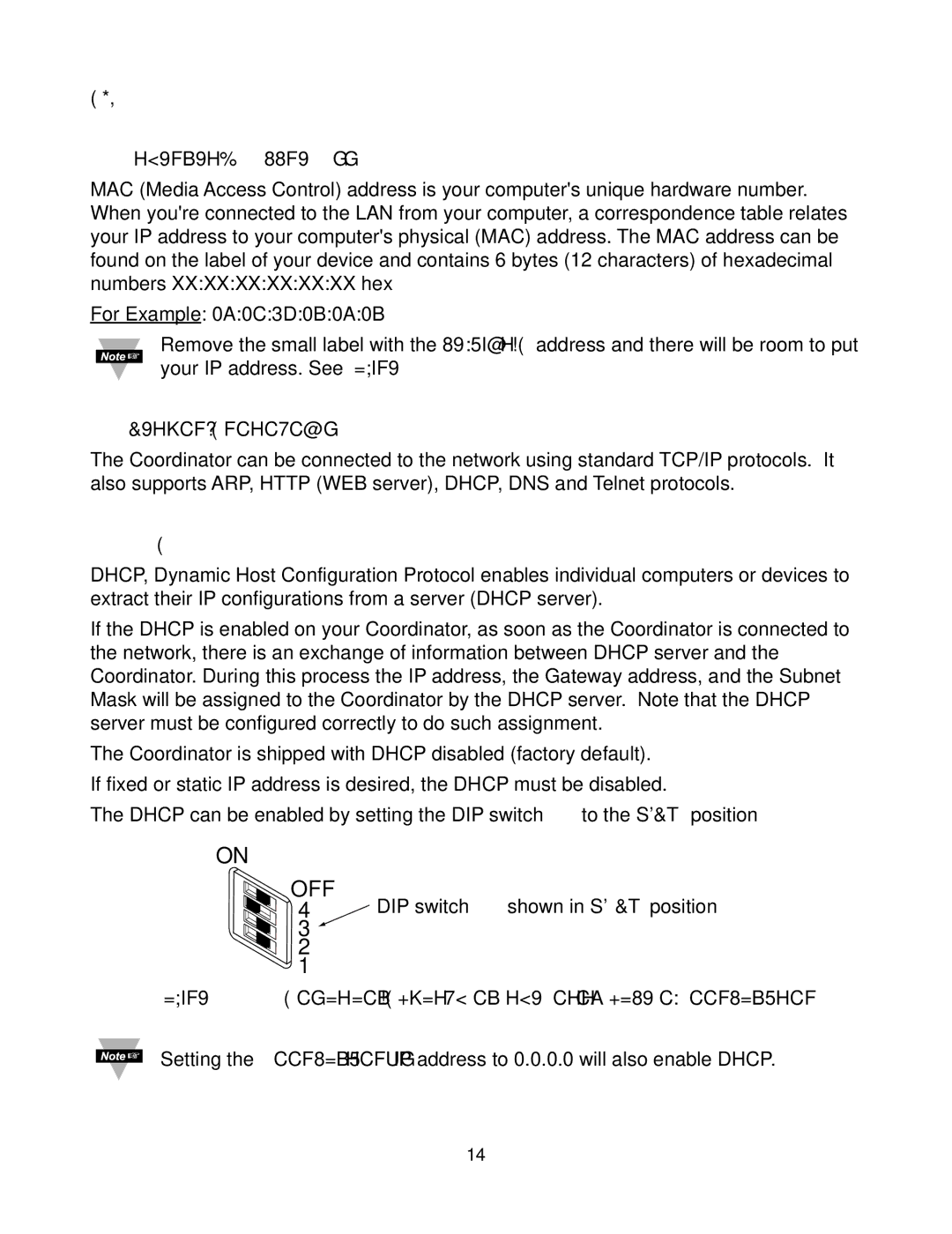
PART 3
NETWORK CONFIGURATION
3.1 Ethernet (MAC) Address
MAC (Media Access Control) address is your computer's unique hardware number. When you're connected to the LAN from your computer, a correspondence table relates your IP address to your computer's physical (MAC) address. The MAC address can be found on the label of your device and contains 6 bytes (12 characters) of hexadecimal numbers XX:XX:XX:XX:XX:XX hex
For Example: 0A:0C:3D:0B:0A:0B
Remove the small label with the default IP address and there will be room to put your IP address. See Figure 2.5.
3.2 Network Protocols
The Coordinator can be connected to the network using standard TCP/IP protocols. It also supports ARP, HTTP (WEB server), DHCP, DNS and Telnet protocols.
3.3 DHCP
DHCP, Dynamic Host Configuration Protocol enables individual computers or devices to extract their IP configurations from a server (DHCP server).
If the DHCP is enabled on your Coordinator, as soon as the Coordinator is connected to the network, there is an exchange of information between DHCP server and the Coordinator. During this process the IP address, the Gateway address, and the Subnet Mask will be assigned to the Coordinator by the DHCP server. Note that the DHCP server must be configured correctly to do such assignment.
The Coordinator is shipped with DHCP disabled (factory default). If fixed or static IP address is desired, the DHCP must be disabled.
The DHCP can be enabled by setting the DIP switch # 3 to the “ON” position
ON
4 | DIP switch # 3 shown in “ON” position |
OFF |
|
3 |
|
2 |
|
1 |
|
Figure 3.1 4 Position DIP Switch on the Bottom Side of Coordinator | |
Setting the Coordinator’s IP address to 0.0.0.0 will also enable DHCP.
14
